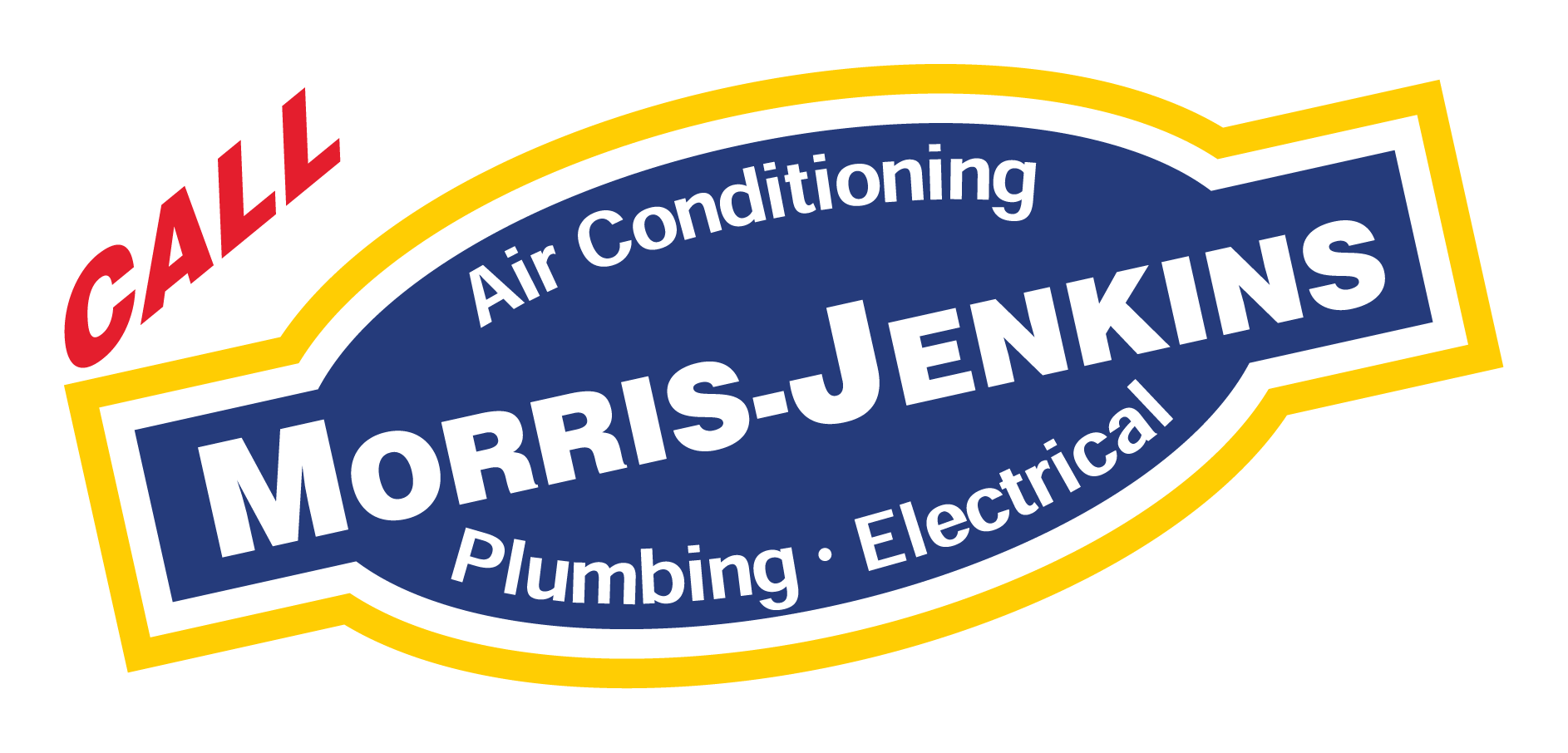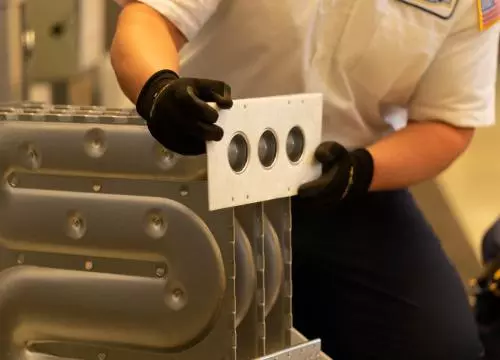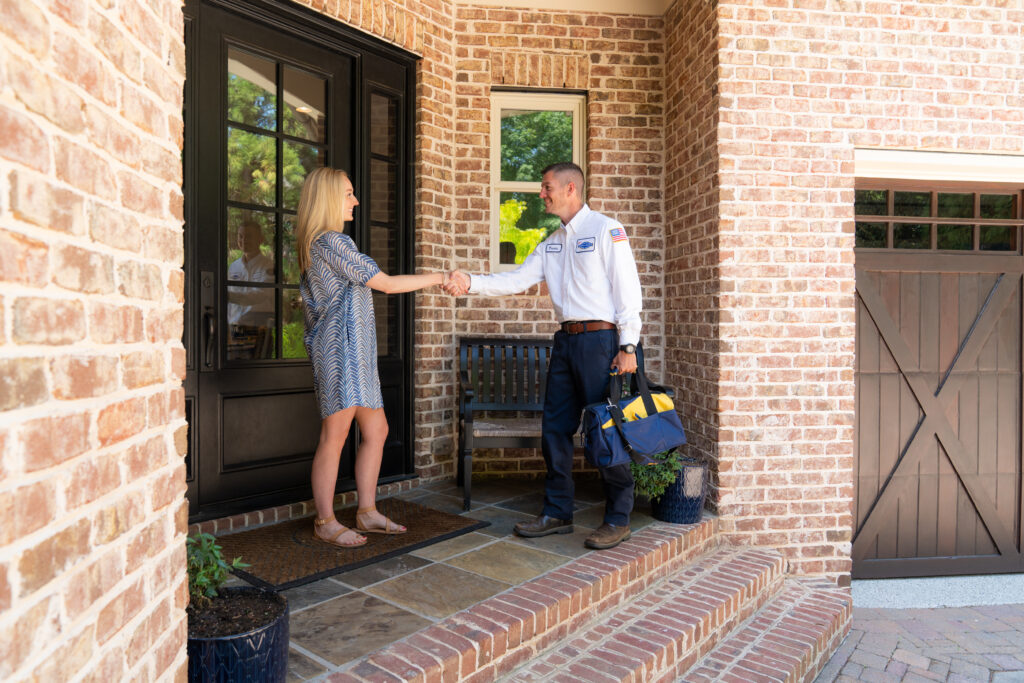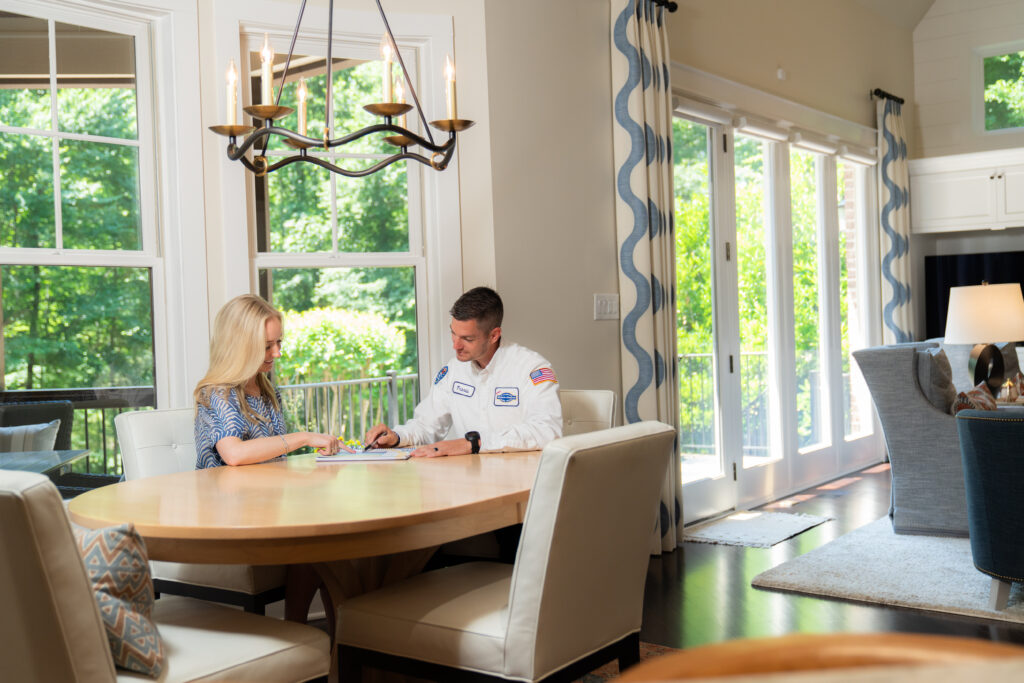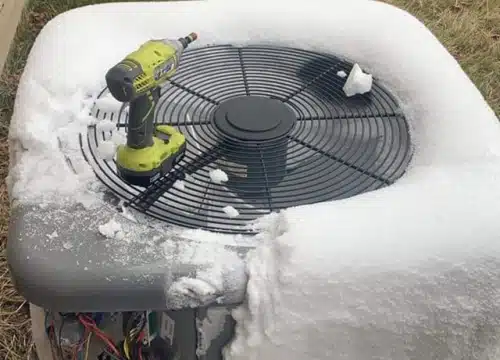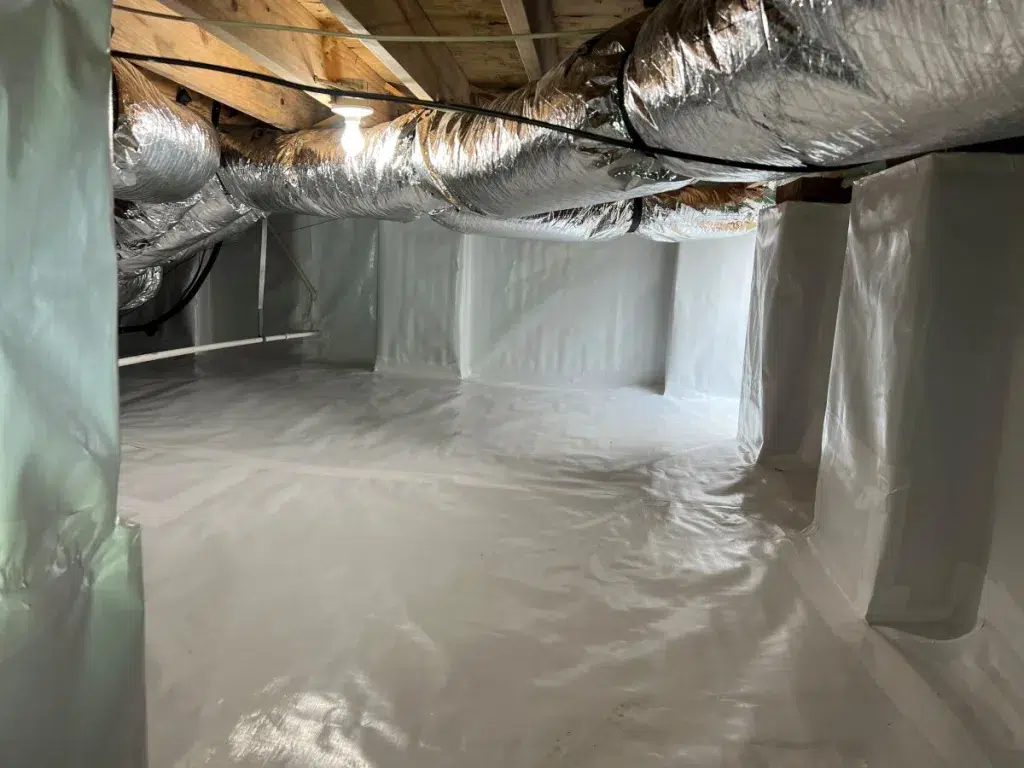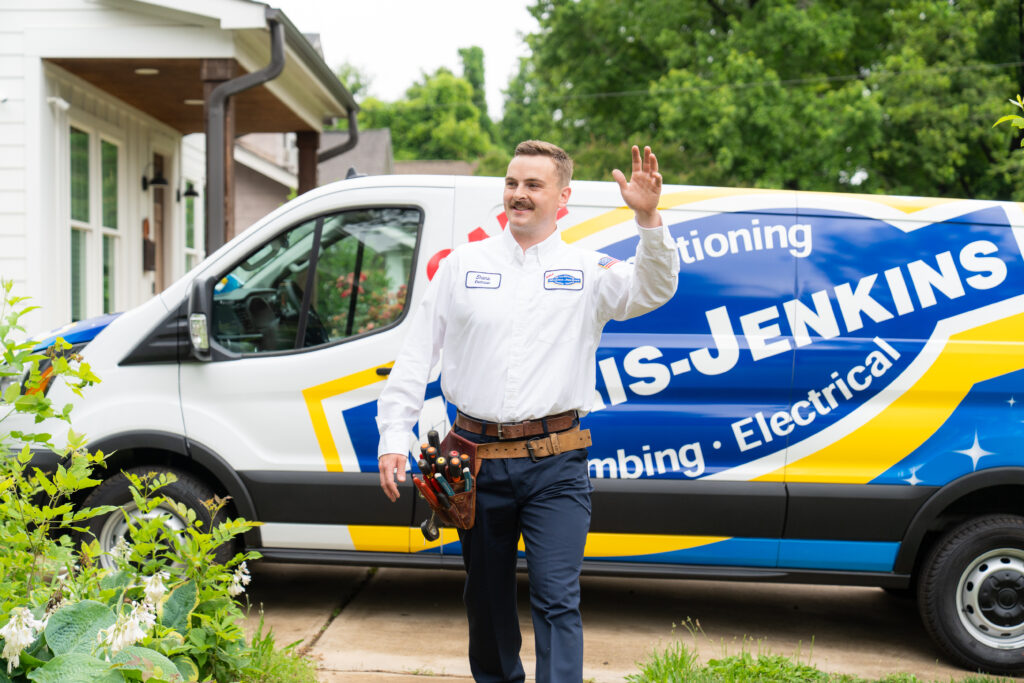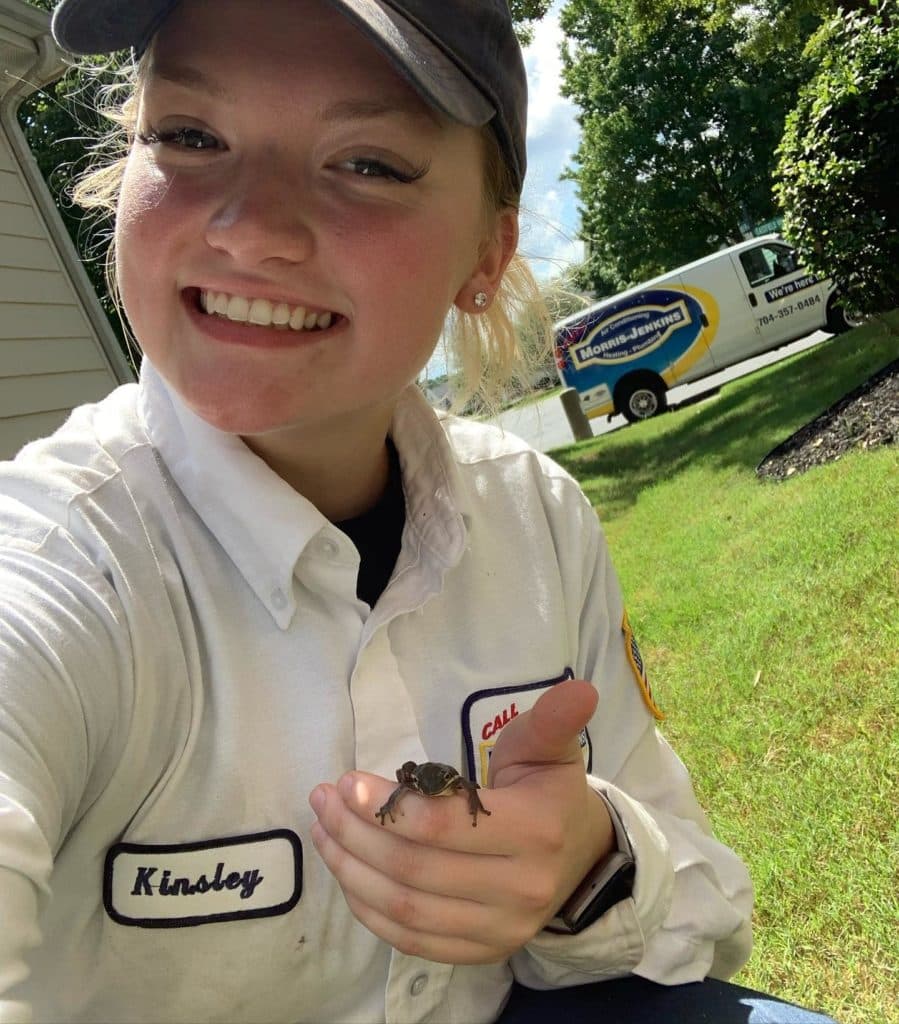You probably won’t know if you have a crack in your heat exchanger unless things become dangerous… OR if you get regular maintenance (your technician is trained to look for this).
If you don’t get your seasonal maintenance, you’re trusting yourself to catch when things are broken. A cracked heat exchanger can lead to a carbon monoxide leak, so this isn’t something to put off getting repaired.
Before we talk about what to do if you have a crack in your heat exchanger, it’s important to understand what a heat exchanger is, how you might know if it’s cracked, and why heat exchangers crack.
Related: “Is HVAC Maintenance Really Worth It?”
What is a Heat Exchanger?
A heat exchanger is a part of your furnace that helps create warm air for your home. Gas is ignited in the heat exchanger, and the blower pushes air across the outside of the heat exchanger, warming that air before sending it into your home. If you have a crack in that vital part of your furnace, not only will your furnace not work as well as it should, but it’ll probably leak gasses into your home!
How Do You Know if You Have a Crack in Your Heat Exchanger?
We hate to say it, but you won’t always know if your heat exchanger is cracked on your own. Most of the time, there aren’t any cracked heat exchanger symptoms until it’s already become dangerous. If you’re lucky, your furnace will stop working, but often, your furnace will keep running even with a crack and will let carbon monoxide into your home.
When your furnace does show signs of trouble, though, you may notice the system isn’t producing heat, your carbon monoxide detector has gone off, or family members have headaches or flu-like symptoms.
Related: “The Silent Killer Hiding in Your Home”
1. Your furnace isn’t producing heat.
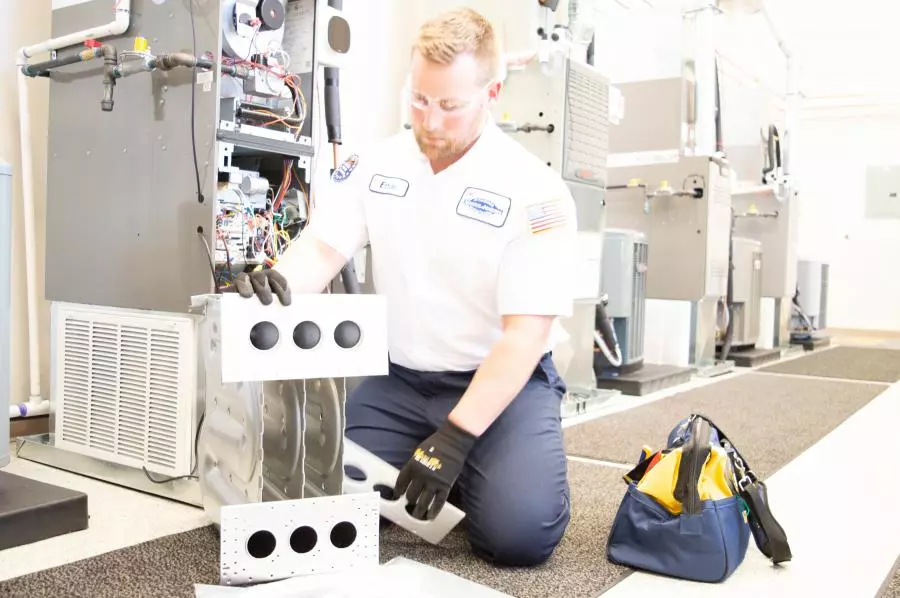
As strange as it may sound, if your furnace stops working because of a crack in your heat exchanger, consider yourself lucky! A broken furnace is an inconvenience, but a CO leak is deadly.
If you have a crack in your heat exchanger, your furnace will start up like normal, but air could blow the fire out of your fire box into the burner chamber. Because of a safety sensor called the Flame Rollout Safety Detector, the fire rolling out to your burner chamber would result in your furnace shutting off. When this happens, your furnace won’t start again until you have a professional reset the sensor (and while they’re there, your Morris-Jenkins technician is trained to check for cracks in your heat exchanger as a possible cause).
Again, this doesn’t happen in 100% of cases with cracks in heat exchangers—this is simply the second-best-case scenario (the first-best would be if you get regular maintenance on your unit and your technician catches the crack before any issues have time to surface).
2. Your carbon monoxide detector goes off.
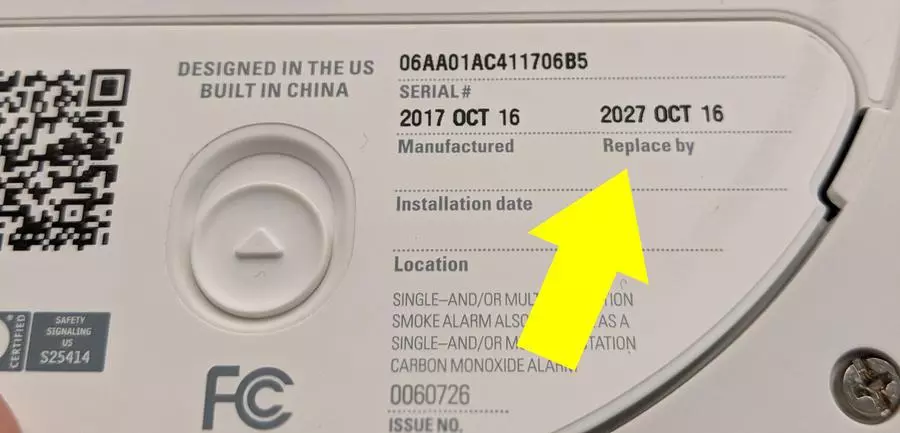
In another scenario, your carbon monoxide (CO) detector could go off. In newer, more efficient gas furnaces, it can be even more difficult to find the crack. The extra unfortunate thing if your CO detector goes off is, not only is your unit leaking CO, but it’s likely leaking quite a bit. CO detectors are set to go off at high levels (usually around 400 ppm). There are a lot of things around the house that would set it off if it were set to a low threshold, so manufacturers set it higher. That means, if your CO detector is going off, it’s not something to ignore!
Your CO Detector May Not Go Off
Not only do detectors have a high limit before they go off, but many of them never even go off at all! Your CO detector uses a silica gel and a sensor to detect the presence of carbon monoxide in the air. Over time, this gel dries up and can’t detect CO anymore. That’s why it’s important to keep track of the expiration dates of any detectors you have in your home. Typically, they dry out after about 5 or 6 years, so if your detectors are over 5 years old, we recommend replacing them.
3. You or your family members have headaches or flu-like symptoms.
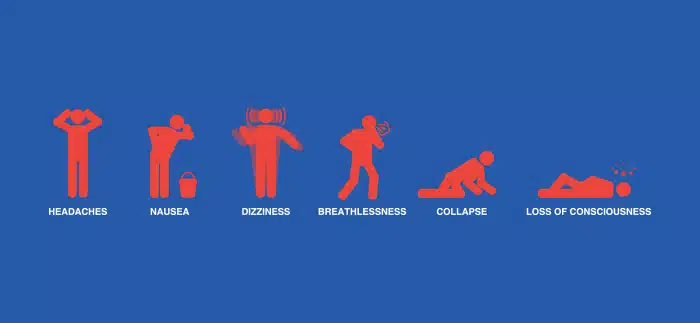
The scariest possibility is that your heat exchanger is cracked, leaks carbon monoxide, and your detectors don’t catch it. If you or your family members have headaches or flu-like symptoms and no known cause, there’s a chance the culprit could be CO. Some of the symptoms of carbon monoxide poisoning include: headaches, dizziness, nausea, breathlessness, collapse, and loss of consciousness. To learn more about the dangers of carbon monoxide, check out our article: “The Silent Killer Hiding in Your Home.”
Senior citizens and small children are particularly vulnerable to carbon monoxide. The same goes for your pets! Have you ever heard about how, in the past, miners would bring canaries down the mine shafts? Birds are super sensitive to CO, so the miners would know if there were dangerous levels of CO in the caves if it affected the canary.
If you have pets, small children, or senior citizens in your home, we recommend two carbon monoxide detectors instead of one.
What Causes Cracks in a Heat Exchanger?
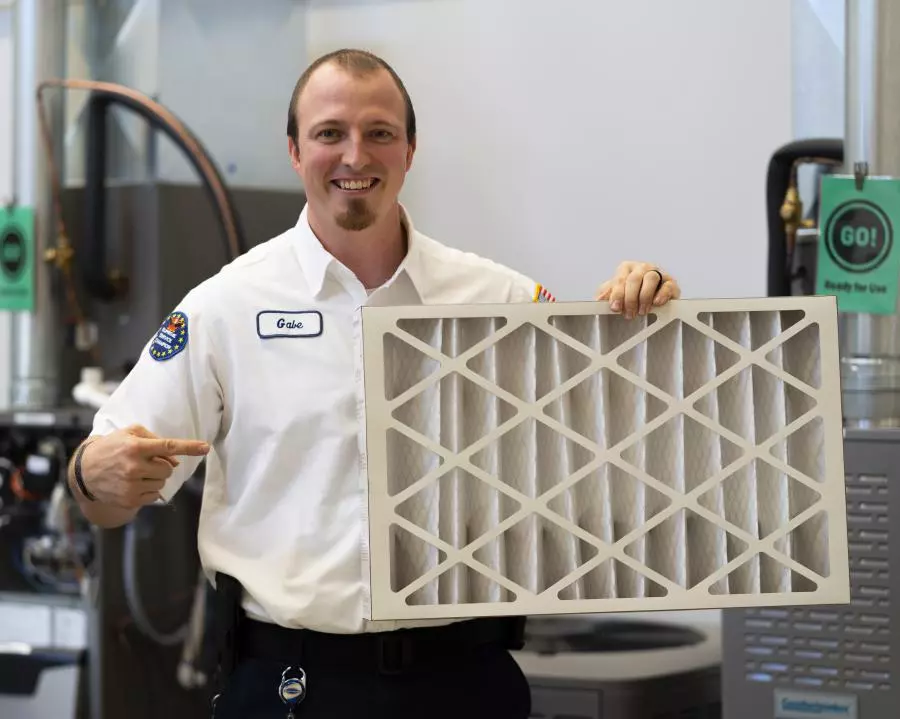
Heat exchanger cracks can be caused by a few things, such as: a dirty filter, incorrectly sized ductwork, or ductwork that wasn’t installed quite right.
If you don’t change your air filters often enough, they’ll get dirty. The longer you leave a dirty air filter in, the worse off your unit is gonna be! A dirty filter doesn’t allow as much air through it, and that means your unit won’t get the air it needs to help remove heat from the exchanger. If that happens, it’ll get too hot, and holes and cracks can start burning through the heat exchanger!
If your ductwork isn’t the right size or it wasn’t installed right, it can cause similar issues with airflow. Not enough airflow leads to an overheated heat exchanger.
Recommended: “5 Furnace Safety Features You Should Meet”
What Can You Do if You Have a Crack in Your Heat Exchanger?
If you have a crack in your heat exchanger, you only have two good options: replace the heat exchanger or replace the furnace. There’s no safe way to truly repair a heat exchanger.
If your furnace is 9 years old or older and it has a crack in the heat exchanger, it might be worth looking into replacing the unit rather than the heat exchanger, simply because, at that age, it’s not uncommon for more parts to begin wearing down and costing you more and more in repairs. At this point, it’s just a more economical decision to replace the unit.
Is It Dangerous to Have Cracks in Your Heat Exchanger?
A cracked heat exchanger is one of the most dangerous types of furnace problems, and it’s why it’s so important to schedule regular maintenance! Not only can it shut your system down when you least expect it, but it also puts your family at risk if carbon monoxide leaks into your home.
You shouldn’t feel like you need to wait around to notice problems until they become serious. The techs at Morris-Jenkins are trained to check the heat exchanger during maintenance visits. We’d rather catch a small crack early than let it turn into a life-threatening situation.
If your furnace is older or you’ve skipped a few tune-ups, don’t wait until you have an emergency. A quick maintenance check could be the difference between a simple repair decision and a dangerous situation.
Work With Morris-Jenkins to Protect Against a Cracked Heat Exchanger
While it may be impossible to know when your heat exchanger is cracked without the help of a professional, it’s important to know the dangers. To give yourself the peace of mind that you and your family can be safe all winter long, schedule a Safety Check. Your technician will come out and inspect your unit super thoroughly for anything that could be a concern. That way, you don’t have to worry about any of this—you can let us take care of things so you can get back to the things that matter most.
Morris-Jenkins is proud to serve Charlotte, NC, providing local furnace services our friends and neighbors deserve. If you’re nervous about a potential crack in your furnace heat exchanger, give us a call! We’ll be happy to help your home stay warm and safe all winter long!
